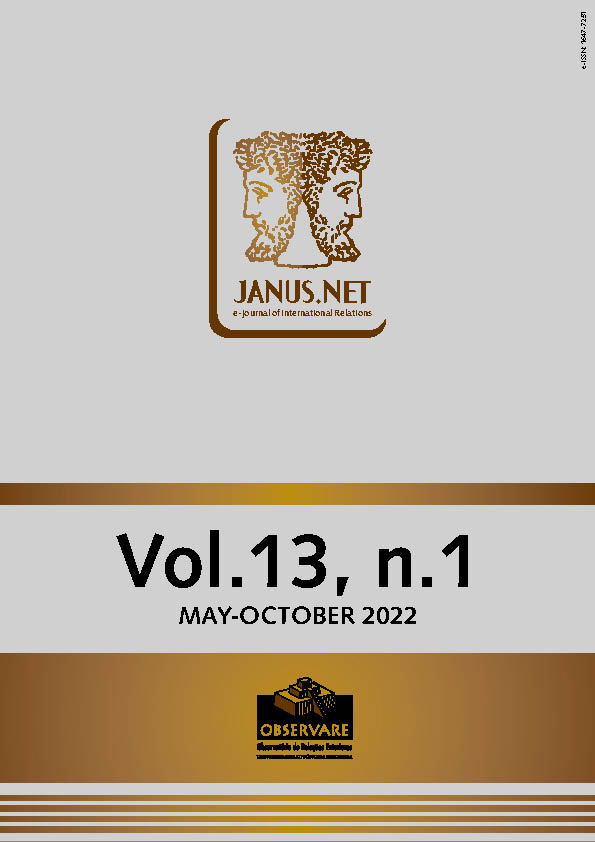The territorial mobilization strategy of the Regional Government of the Azores (GRAA) with the European Union (EU) is based on the use of all regionally based representation channels provided by the EU, including the Transregional European Associations (TEAs). Among these, we highlight the Conference of Peripheral Maritime Regions (CPMR) which GRAA presided during the 11th and 12th Governments, in the person of the president of GRAA Vasco Cordeiro. Based on this observation and given that the literature still does not offer any information on the purpose of using TEAs, this article aims to fill this gap by identifying the purpose of thee GRAA’s using the CPMR. Thus, using the conceptual framework offered by Callanan and Tatham (2014) and by conducting eight semi-structured interviews with political and technical personalities from the GRAA and the CPMR, it was possible to conclude that the GRAA uses the CPMR mainly for the purpose of regulatory mobilization. (4.9 out of 5) and residually for the purpose of financial mobilization (3.3 out of 5). More specifically, in terms of regulatory mobilization, the essential issue for the GRAA is the maintenance of a strong cohesion policy, although sporadic opportunities are probed in various policy areas that may result in more advantageous frameworks for the GRAA. In terms of financial mobilization, the use of the CPMR is mainly related to the formation of consortia that can be an end in itself or can constitute an opportunity to prove certain political points.
ACCEPTING ULTRAPERIPHERY: THE ROLE OF THE CONFERENCE OF PERIPHERAL MARITIME REGIONS (CPMR) IN THE TERRITORIAL MOBILIZATION STRATEGY OF THE GOVERNMENT OF THE AZORES WITH THE EUROPEAN UNION
andre.pimentel_garcia@coleurope.eu
Master Degree student in European Studies, College of Europe-Natolin (Poland). Master Degree in Political Science, University of Minho. Bachelor Degree in Communication Science, University of Porto.
Assistant Professor, University of Minho (Portugal). Bachelor Degree in International Relations and a Master Degree in Political Anthropology. Ph.D. in Political Science. She is Director of the Bachelor Degree in Political Science, University of Minho. She is an integrated member of the Centre for Research in Political Science, University of Minho and a scientific fellow, Research Centre for Political Life at the Libre University of Brussels. She was a visiting researcher, London School of Economics and University of Edinburgh and is Institute of International Studies (IBEI) in Barcelona. She received a scholarship from the Foundation for Science and Technology. She collaborated with the Committee of the Regions and the Assembly of European Regions. She was a political consultant for the Government of Catalonia and is a member of the Scientific Council of the Coppieters Foundation, Brussels. Her research focuses on nationalist movements within the European Union and on the representation strategies of regional and local entities within the European Union and on the Europeanization processes of small centralized states, such as Portugal, resulting in a book published by Routledge, 'Europeanization and Territorial Politics in Small European Unitary States: A Comparative Analysis'.
Resumo
Palavras-chave
Como citar este artigo
Garcia, André Pimentel, Antunes, Sandrina Ferreira (2022). Accepting ultraperiphery: the role of the Conference of Peripheral Maritime Regions (CPMR) in the territorial mobilization strategy of the Government of the Azores with the European Union. In Janus.net, e-journal of international relations. Vol13, Nº. 1, May-October 2022. Consulted [online] on the date of the last visit, https://doi.org/10.26619/1647-7251.13.1.6
Article received on 4 January, 2022 and accepted for publication on 13 April, 2022















